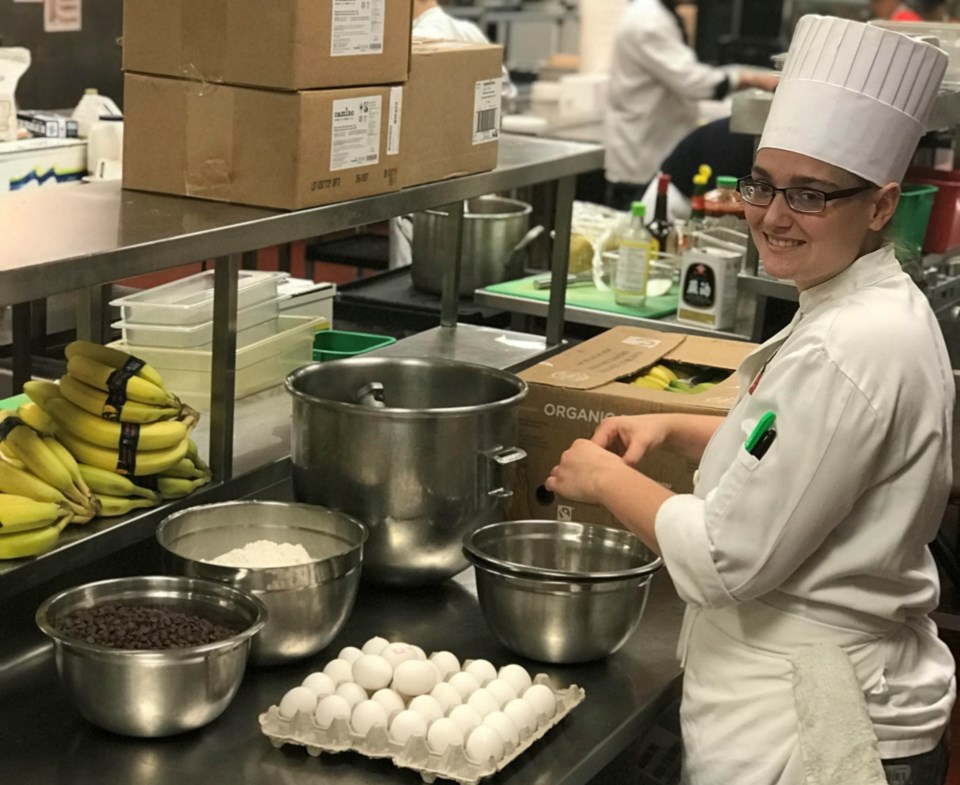The fair trade food movement deserves special recognition from consumers, and from agriculture. Fair trade blazed a trail for local food, arguably the biggest thing to benefit farming in years. And next week, on the University of Guelph campus – and, in fact, across the country -- fair trade gets a well-earned nod.
Fair Trade Campus Week takes place nationwide from Sept. 25-29. The U of G, through its Hospitality Services unit, will take part in several fair trade related activities, including what procurement manager Mark Kenny believes to be the world’s largest fair trade bake sale.
“Hospitality Services is proud to support purchasing and highlighting fair trade products on the University of Guelph campus, as a certified Fair Trade Campus by Fair Trade Canada,” says Kenny.
“We offer many different fair trade coffees, teas and chocolate bars across campus, with special focus on local partnerships to enhance education about fair trade products. And next week will be even more special.”
Guelph was an early adopter of fair trade. Years ago, before the local food movement arose in the developed world, fair trade was all the rage. A dedicated core of influential purchasers had drawn a line in the sand, saying they weren’t going to buy commodities from global companies that took advantage of poor farmers in developing countries.
Companies dealing with these farmers and labourers simply had to treat them more fairly; thus, fair trade.
Up until then, people didn’t seem to deeply question their food sources, domestic or imported, at least not like they do now.
But when fair food advocates dug deep and revealed how some farmers were not getting a decent return on their commodities, such as coffee and chocolate, consumers grew concerned. With that, the fair trade movement was off and running.
At first, the movement was dismissed in some circles as being alarmist, elitist and temporary. The implication was that if a certain imported commodity wasn’t certified fair trade, then it must be grown or raised through unfair practices. And anyone who supported such approaches was pro-big business.
Did that mean fair trade was destined to be a flash in the pan?
Not to fair trade supporters, including the University of Guelph. Fair trade struck a chord with justice-minded consumers, punching above its weight, blazing a trail for many other participants in today’s segmented food market -- local, organic, gluten-free, free range, etc. production. More than 1.6 million farmers and workers in 75 countries are now part of fair trade production.
On campus, local fair trade partnerships have flourished. One of the most notable is with Planet Bean, which produces fair trade Gryphon Blend (100 per cent Cafe Feminino) sold at Planet Bean Mac Hall, the U of G Bookstore and on the Caffeine Canteen. Sales of it support Guelph Gryphon women’s athletics scholarships.
And next week on campus, a new partnership with Baden Coffee and Stratford retail store Rheo Thompson Candies is being announced, with a coffee flavour called Mint Smoothie getting rolled out.
Throughout the week, Hospitality Services will be taking part in the World’s Largest Fair Trade Bake Sale.
Mountain, Lennox Addington, Creelman Hall and Centre 6 will offer fair trade chocolate chip banana bread, made from fair trade chocolate chips, bananas and sugar.
On Thursday, the Caffeine Canteen will be in Branion Plaza selling chocolate chip banana bread, supported by a fair trade education booth, from 8 a.m. – 1 p.m.
And on Friday, chef extraordinaire @ExhibitionIan in Creelman Hall will be whipping up fair trade banana bread French toast.
Proceeds from the week are being donated to U of G CSA Food Bank, with a focus on fair trade items.
Fair trade supports food grown thousands of kilometres away by local farmers scratching out a living there. It offers a less competitive view of local food, based on the premise that family farmers everywhere must be treated fairly.
Because if they don’t get a reasonable price for the food they produce, sustainability is off the table.
